The Mpemba Experiment – Fun Science Experiment Freezing Hot Water
One of the coolest things about science is that there are always new experiments to try. And this one, called the Mpemba experiment, is a doozy. Have you ever noticed that sometimes hot water can freeze faster than cold water? It’s true!
This strange phenomenon is called the Mpemba effect. The premise is simple: can hot water freeze faster than cold water? Let’s find out!
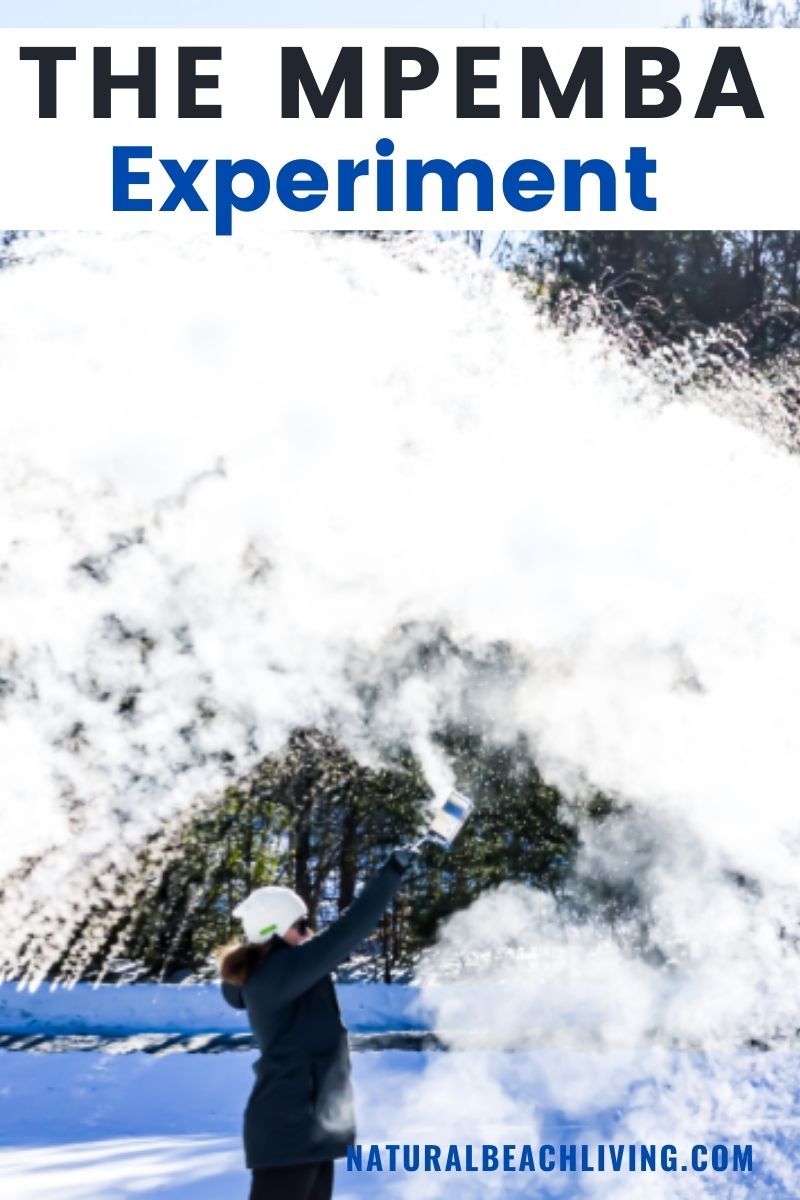
The Mpemba Experiment Science Experiment
The Mpemba Experiment is a famous science experiment that has been around for many years. The experiment proves that hot water can freeze faster than cold water. The experiment was first discovered by a Tanzanian student named Erasto Mpemba.
There have been many different explanations for why this happens, but scientists are still not sure why it occurs. Some people believe that hot water starts to freeze faster because it has more dissolved gas in it. Others believe that the hotter water is able to hold its heat longer, which allows it to freeze faster.
No matter what the reason is, the Mpemba Experiment is a fun experiment to try at home! All you need is a pot of hot water and a pot of cold water. Make sure to time how long it takes for each one to freeze and see which one does it faster! The Mpemba Experiment is always a fun way to teach kids about science!
affiliate links can be found on this blog at no cost to you.
Mpemba Effect Experiment
Winter Activities for Kids
In this experiment, you’ll discover how and why hot water can sometimes freeze before cold water. Try it out for yourself and see what happens!
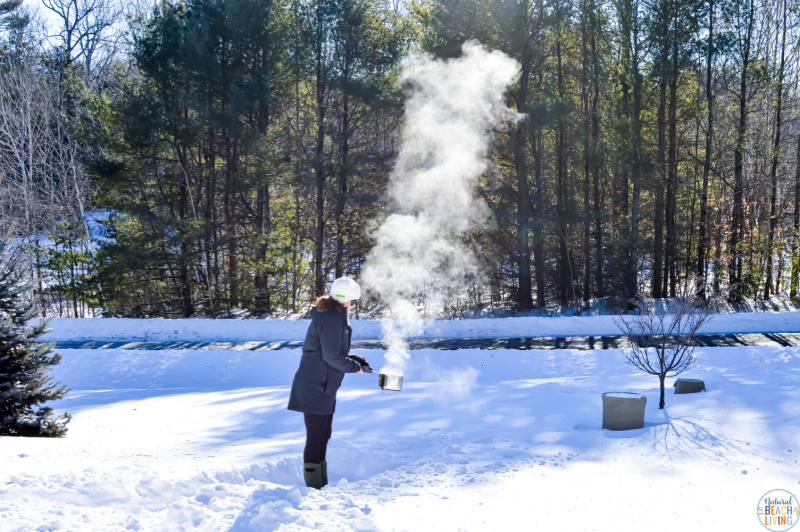
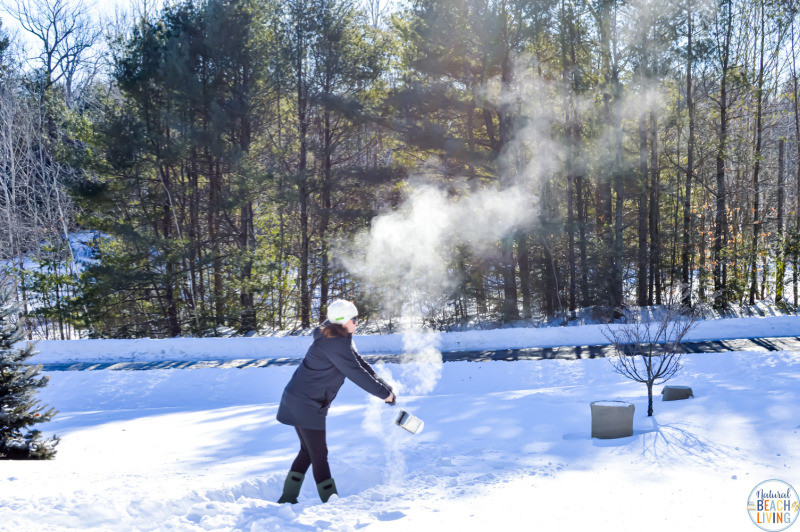
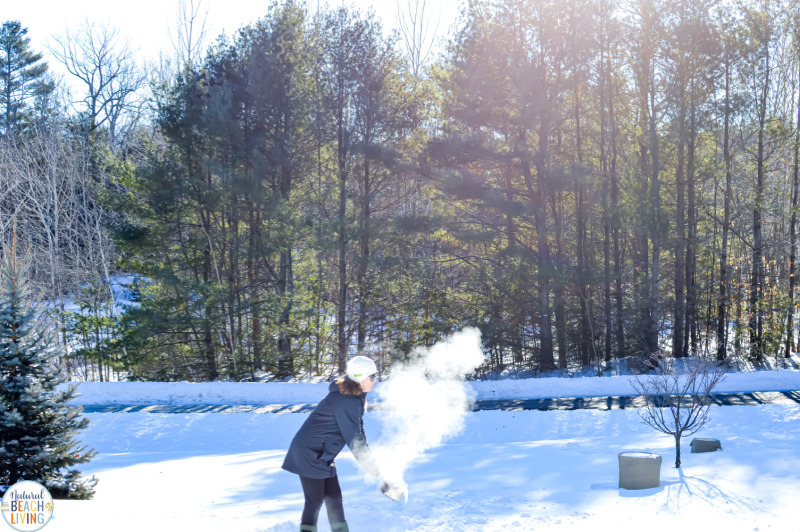
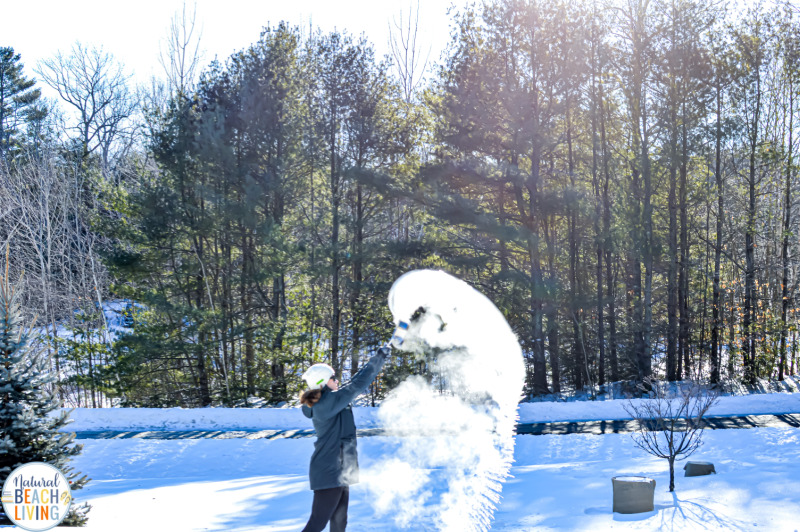
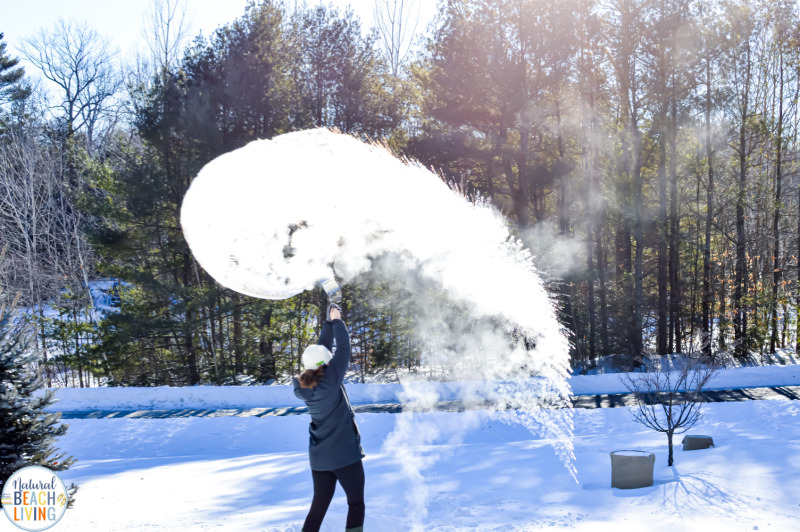
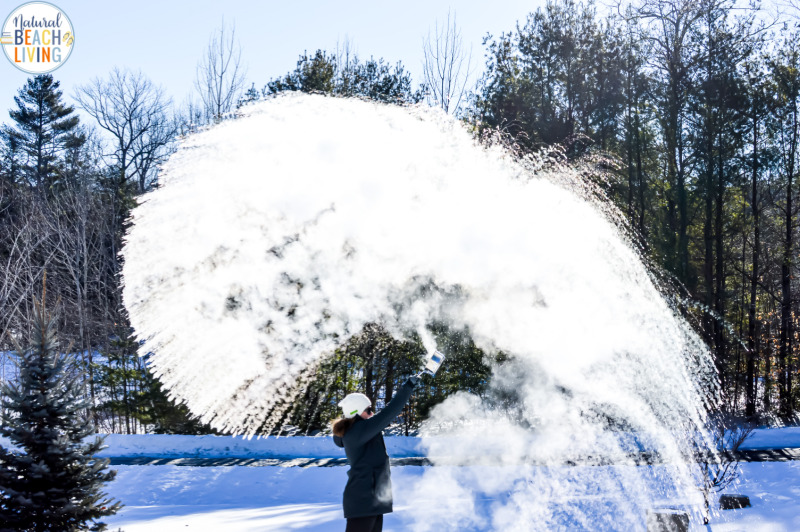
Freezing hot water: The Mpemba Experiment
This is a serious experiment, and serious injuries could occur if precautions aren’t taken seriously. But, it’s so cool and so much fun to watch.
This project is for adults to do, and children can make observations, enjoy the experiment, and share in the wonder of this from a safe distance or inside looking through a window.
Be sure this is a project that is only done when the temperature is BELOW -5 degrees F. Do not do this project if you are unsure of the temperature.
Avoid this project if it is windy.
Wear a thick coat, gloves, and body protection. Many people wear face/head and eye protection when doing this project.
How do you do the Mpemba effect experiment?
You’ll need about 6 cups of extremely hot to boiling water.
Safe stove pot or container with a sturdy handle that you can hold on to with hand protection and be able to toss the water out of easily. Try to make sure it is not something that can easily slip out of your hands (as it could fall on you if it does)!
Follow these steps:
When the weather conditions are right, and you have your safety layers on, you can start to boil the water.
**Tip, we boil either a BIG pot of water or a couple of smaller ones at the same time so we can do this experiment a few times. It helps make it more fun where the magic happens so quickly.
You can also heat smaller amounts of water a little faster in the microwave.
Put a lid over the boiling water and carefully go straight outside.
When safe and ready, remove the lid and toss the water up in the air.
**Tip, you do not need to throw the water over your head for this to be an awesome project that’s fun to do and watch. **You DO still need to take safety precautions, even if not tossing the water over your head. You can explore by tossing the water away from you, next to you…
Do a few trials to build your safety confidence before trying it over your head if you are going to do it.
If you want to arch it over your head, stand with your feet shoulder-width apart.
Two hands on the water pot and quickly wave the water pot up and over you in one swift motion.
*You can find additional information here about the Mpemba effect
https://en.wikipedia.org/wiki/Mpemba_effect
Science Experiment Freezing Hot Water
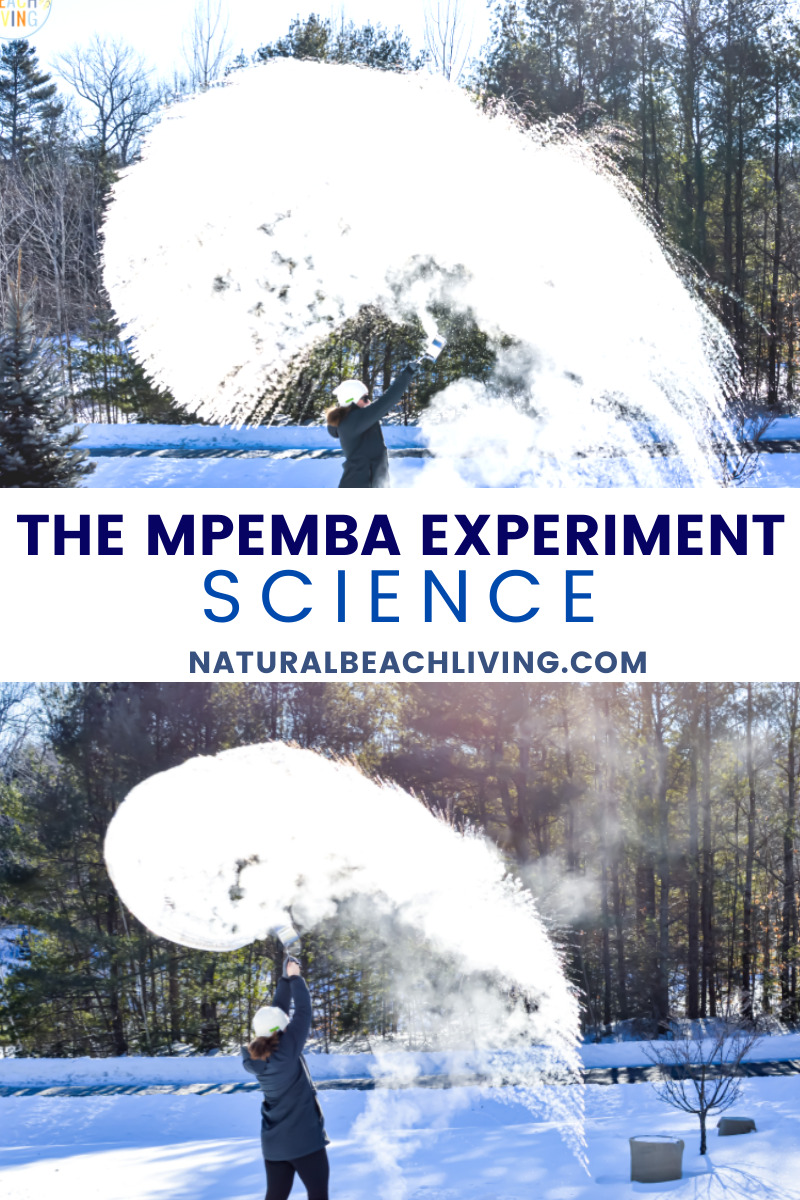
Outdoor science experiments are a great way to get kids interested in science. By doing experiments outside, kids can learn about science while having fun and getting some exercise!
Mpemba effect science experiment
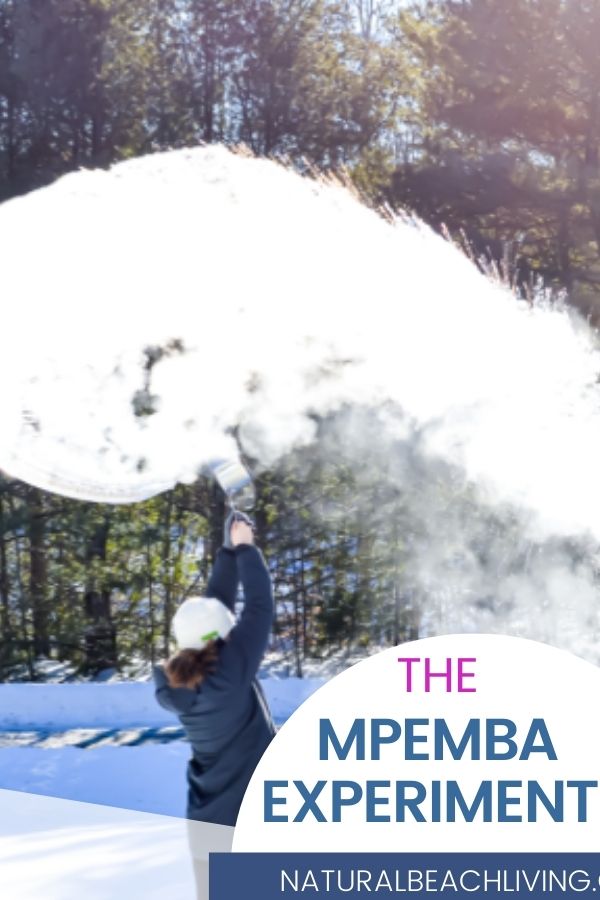
So, what have we learned from the Mpemba Experiment?
The science experiment shows that hot water can freeze faster than cold water. This phenomenon is still being studied to determine all of the contributing factors, but there are a few things scientists think may be responsible for this occurrence.
One theory is that convection currents are stronger in hotter water, which helps the ice crystals form more quickly. Another possibility is that dissolved gas bubbles get trapped in colder water, slowing down the freezing process.
Whatever the reasons may be, it’s clear that hot water doesn’t always follow the rules!
Have you tried freezing hot water before? What was your experience? Let us know in the comments below.
Science Activities for Kids
How to Make Frozen Bubbles
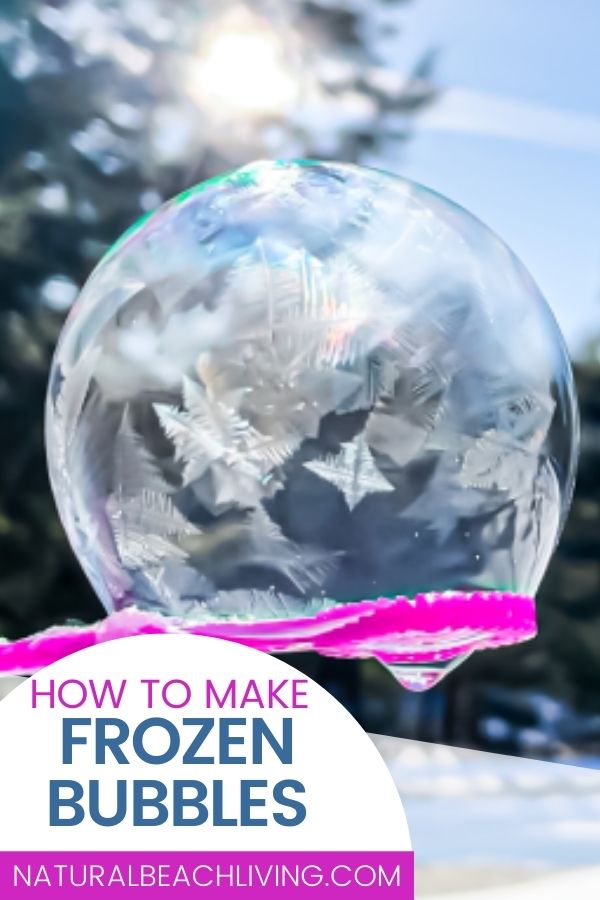
DIY Crystal Snowflake Ornaments
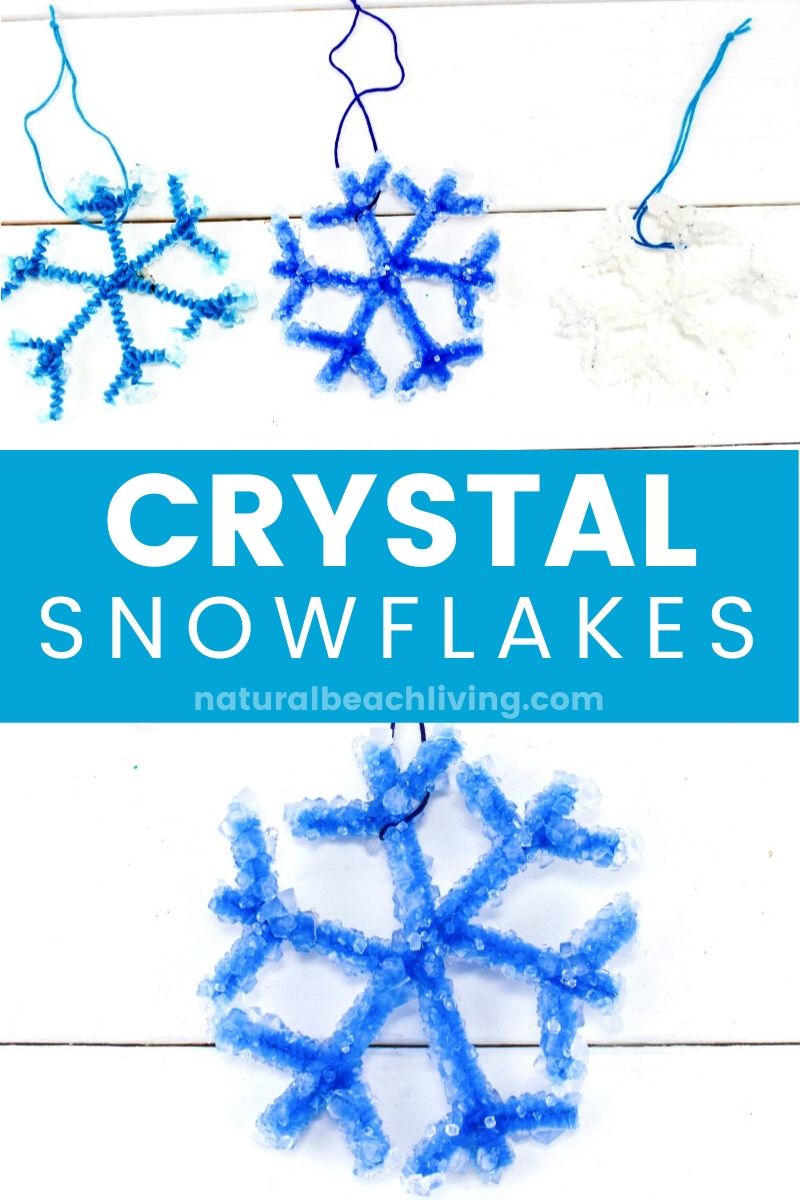
25+ Winter Science Activities

25+ Montessori Science Activities and Experiments for Kids


